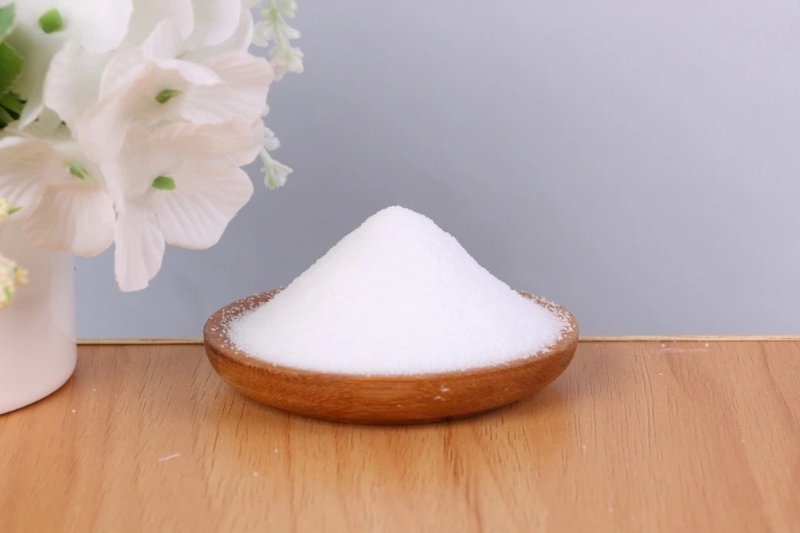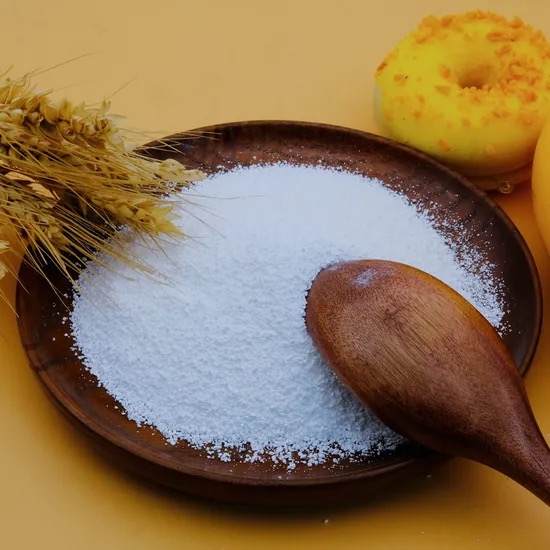







Content Menu
● Benefits and Uses of Sorbitol
● Possible Side Effects and Safety Concerns
● Interactions and Usage Precautions
● FAQ
>> 1. What is sorbitol and where is it found?
>> 2. Does sorbitol cause weight gain?
>> 3. Can sorbitol cause digestive problems?
>> 4. Is sorbitol safe for diabetics?
>> 5. Can sorbitol harm teeth?
Sorbitol is a sugar alcohol, also known as a polyol, used widely as a sugar substitute in foods, beverages, and medications. Found naturally in fruits such as apples, apricots, and berries, sorbitol is commercially produced mainly from corn syrup. It serves multiple purposes, including preserving moisture, adding sweetness, and improving texture in products. Because sorbitol provides fewer calories than table sugar and has minimal impact on blood glucose, it is popular among diabetics and those seeking to reduce sugar intake.

Sorbitol contains about two-thirds the calories of regular sugar and provides about 60% of sugar's sweetness. Unlike table sugar, sorbitol is not fully absorbed in the small intestine; the remaining portion ferments in the large intestine, resulting in fewer calories absorbed. This characteristic makes it suitable for calorie-controlled diets and diabetic-friendly products.
Sorbitol is often added to sugar-free chewing gum and oral care products due to its non-cariogenic nature—it does not promote tooth decay. The FDA recognizes sugar alcohols like sorbitol as beneficial to oral health, with research indicating reduced cavity risk compared to table sugar.
Medically, sorbitol is used as a laxative to treat constipation. Its hyperosmotic nature draws water into the colon, encouraging bowel movements. It is available over the counter as a laxative in various forms, including oral solutions and enemas.

While sorbitol offers several benefits, consuming it in large amounts may cause gastrointestinal discomfort. The most common adverse effects include bloating, gas, abdominal cramps, and diarrhea. This is especially prominent in people unaccustomed to sugar alcohols or when intake exceeds about 10 grams per day. Due to its laxative effect, excessive consumption can lead to electrolyte imbalances, underscoring the importance of following dosage instructions.
Sorbitol carries a "laxative effect" warning when present above certain concentrations in foods or drinks (usually above 10%). Individuals with digestive sensitivities or those following a low FODMAP diet (such as many with irritable bowel syndrome) should avoid sorbitol due to the fermentable nature of polyols triggering symptoms.
Globally, regulatory agencies including the U.S. FDA, Joint FAO/WHO Expert Committee on Food Additives, and the European Union consider sorbitol safe when consumed within established acceptable daily intake (ADI) levels.
Sorbitol should not be taken concurrently with calcium or sodium polystyrene sulfonate because such combinations may cause serious intestinal damage. Those using sorbitol to relieve constipation should avoid combining it with other laxatives unless directed by a healthcare provider.
While sorbitol is generally safe for adults, caution is advised for children, pregnant or breastfeeding women, and individuals with preexisting digestive disorders. Consultation with healthcare professionals is recommended in these cases.
Alternatives for those seeking sweeteners or laxatives include other sugar alcohols like erythritol and xylitol. Natural laxatives and fiber-rich foods such as flax seeds, chia seeds, kefir, prunes, apples (also natural sources of sorbitol), and fiber supplements can support digestive health. Herbal options like senna and aloe vera and supplements like magnesium citrate also serve as laxatives.
Sorbitol is a widely used sugar substitute and laxative that offers benefits such as reduced calorie content, low glycemic impact, and dental health advantages. While considered safe by global health authorities, excessive intake can lead to gastrointestinal side effects like bloating and diarrhea. Individuals with digestive sensitivities or those on low FODMAP diets should be cautious. By consuming sorbitol within recommended limits and consulting healthcare providers when needed, sorbitol can be a helpful component of health-conscious food and healthcare products.

Sorbitol is a sugar alcohol naturally found in some fruits like apples and berries, and is commercially manufactured from corn syrup for use in foods, drinks, and medications.[1][2]
Sorbitol contains fewer calories than sugar and is not fully absorbed in the small intestine, resulting in lower calorie uptake. It may support weight management when used as a sugar substitute.[2][1]
Yes, consuming large amounts of sorbitol can cause bloating, gas, abdominal cramps, and diarrhea, especially if the body is not accustomed to sugar alcohols. It has a laxative effect.[1][2]
Sorbitol has minimal impact on blood sugar and is commonly used in diabetic-friendly products. However, moderation is advised.[1]
Unlike sugar, sorbitol does not contribute to tooth decay and may reduce cavity risk, which is why it is commonly used in sugar-free gum and oral care products.[1]
[1](https://www.healthline.com/nutrition/what-is-sorbitol)
[2](https://www.nhs.uk/live-well/eat-well/food-types/are-sweeteners-safe/)
Top Nutritional Supplement Manufacturers And Suppliers in Indonesia
Top Nutritional Supplement Manufacturers And Suppliers in India
Top Nutritional Supplement Manufacturers And Suppliers in Germany
Top Nutritional Supplement Manufacturers And Suppliers in France
Top Nutritional Supplement Manufacturers And Suppliers in Canada
